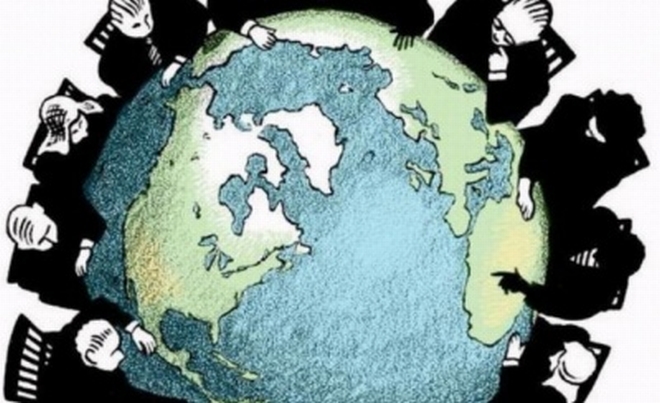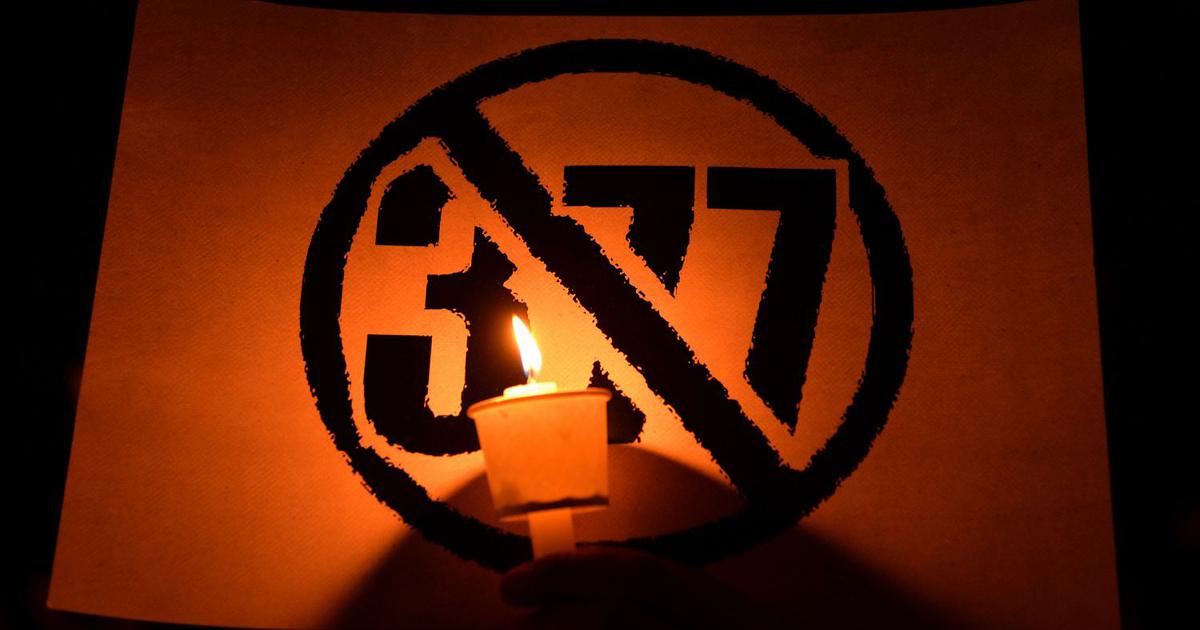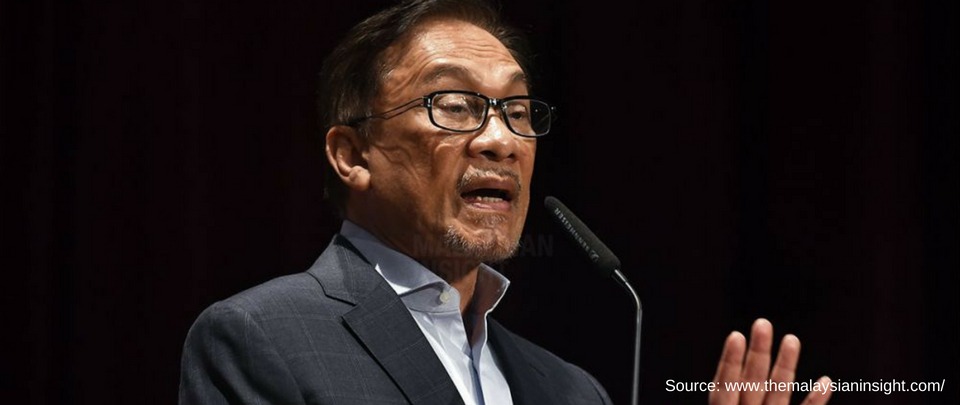Transcript – BFM Interview – Anwar: ‘Beware the Super Liberal’ – 27 September 2018
PKR president-elect Anwar Ibrahim is urging people to fight against the demanding group of “super liberals.”
Produced by: Loo Juosie
Presented by: Lee Chwi Lynn (“Lynn”), Umapagan Ampikaipakan (“Uma”)
Transcribed by: Saif Bhatti, Fellow, Islamic Renaissance Front
Tags: evening edition, Anwar Ibrahim, PKR, liberal, super liberal, Port Dickson, PD Move, Politics, News, Current Affairs
Link: https://www.bfm.my/anwar-beware-the-super-liberal
BFM PODCAST TRANSCRIPT
Uma: Lynn and Uma with you – this is the evening edition. 6.14 in the evening. Our next story is the PD Move – something that Datuk Seri Anwar Ibrahim has said about the PD Move’s critics: namely that the electorate needs to beware of ‘super liberals’.
Lynn: He said that very well. That is exactly how I read it.
Uma: Here’s my question: How do I know if I am a ‘super liberal’ or just a regular liberal?
Lynn: Let me tell you there is a BuzzFeed quiz on this. But we do want to know, I mean this question of ‘liberal’ and ‘super liberal’. It seems that liberal has become something of a bad word – I mean – do you agree with that? Is it really such a bad thing to be liberal? That number to call 77332900 – keep your thoughts coming. In the meantime, so, he said that this group of, again, ‘super liberals’ talk about national issues without regard to others’ views as if they “owned the country”. Which is a funny quote.
Uma: Given that the sense of entitlement to be Prime Minister, might make one think that you feel like you own the country lah. I’m just saying.
Lynn: You are just saying.
Uma: I am just saying.
Lynn: Yes.
Uma: Now, I think it is an interesting attack on the ‘super liberals’ one that echoes something that Rafizi himself had said – twice actually – once when he was speaking to us at the Breakfast Grill over here you can download that podcast. And then a few weeks ago when he gave an exclusive interview to the Malay Mail and he was talking about how, I think, he used the word: ‘ultra liberals’about howultra liberals were judging Datuk Seri Wan Azizah based on the she dressed. They said that because she was wearing the tudung, that people were judging her as being overly conservative.
Lynn: Right. And that’s… it’s kind of a theme that’s running here. Datuk Seri Anwar Ibrahim said they say I cannot be trusted. This is the liberal group that thinks I am too Malay and too Islamic. So, there I suppose a certain amount of sentiment that seems to be arising and attaching itself to this term ‘super liberal’ which again I’m not sure is a term that exists outside of this context. I don’t think it’s one that is being used a lot.
Uma: I know. I don’t think I have… and here’s the thing, I think I can see where he’s coming from, from a political standpoint in that very early on after the victor after May 9thAnwar Ibrahim had come out and said and reminded people that they didn’t get all of the Malay vote. I think that was a very important factor. And, I think he’s been worried throughout about alienating that Malay vote.
Lynn: Sure.
Uma: The problem of course is that by making statements like this you of course run the risk of alienating the people who actually voted for you and you know, when you were thrown into prison, under trumped up charges of being a sodomist, it was the ‘super liberal’ that actually fought for your release. And, I guess therein lies the danger right? Who do you offend or who can you risk offending in great amounts? It’s a political play.
Lynn: It is. But it’s one that comes, I mean, it would only exist because of the weight of the word ‘liberal’.
Uma: Correct.
Lynn: Yeah. If ‘liberal’ weren’t a shorthand of some kind, it wouldn’t have been used so quickly and so easily in this way.
Uma: We have on the line Dato’ Dr Ahmad Farouk Musa, Chairman and Director of the Islamic Renaissance Front. Farouk, thank you so much for joining us on the program. Now, from the conventional political science perspective, what does the term ‘liberal’ mean?
 Dr Farouk: Well, I guess, you can look at that angle, one is the political liberal. And one is the economic liberal. I think we’re more concerned with political liberals but I think I should explain a little bit about economic liberals also. Like if you look at this left wing economic liberals, they were asking for a Welfare State as compared to the right wing liberals who basically promoting laissez faireor free markets or in the 21stcentury called as neo-liberals – neo-liberalism. But, in the political sense, we say that liberal political doctrine is basically – it tries to kind of protect and enhance freedoms of individuals. Basically, it believes that government is necessary to protect individuals from being harmed by others. But, on the other hand, they also recognise that government itself can pose a threat to what we call as ‘liberty’ itself. Previously, this American philosopher Thomas Paine, he was a political activist, an American philosopher, and political theorist as well. He wrote in his book Common Sense, that government is, at best, a necessary evil. Laws, judges, police, they’re needed to secure our liberty – individuals’ lives and liberty. But, their coercive power could be used to turn against us as well. So, the problem is now to devise a system that gives government the necessary power to protect individual liberty but also to prevent those who govern, or the government, from abusing their power.
Dr Farouk: Well, I guess, you can look at that angle, one is the political liberal. And one is the economic liberal. I think we’re more concerned with political liberals but I think I should explain a little bit about economic liberals also. Like if you look at this left wing economic liberals, they were asking for a Welfare State as compared to the right wing liberals who basically promoting laissez faireor free markets or in the 21stcentury called as neo-liberals – neo-liberalism. But, in the political sense, we say that liberal political doctrine is basically – it tries to kind of protect and enhance freedoms of individuals. Basically, it believes that government is necessary to protect individuals from being harmed by others. But, on the other hand, they also recognise that government itself can pose a threat to what we call as ‘liberty’ itself. Previously, this American philosopher Thomas Paine, he was a political activist, an American philosopher, and political theorist as well. He wrote in his book Common Sense, that government is, at best, a necessary evil. Laws, judges, police, they’re needed to secure our liberty – individuals’ lives and liberty. But, their coercive power could be used to turn against us as well. So, the problem is now to devise a system that gives government the necessary power to protect individual liberty but also to prevent those who govern, or the government, from abusing their power.
Lynn: And has the meaning of the term changed in terms of how it’s being used today?
Dr Farouk: Yeah. I guess somehow or rather, that this particular term has been distorted. Like it has… it is kind of derogatory in a manner and it has very negative connotations of the word ‘liberal’. And, every week, you hear from these mosques in KL and Selangor, like they’re demonizing liberals – like it’s routine for them to demonize liberals. It brings a very negative connotation nowadays because it seems liberals, instead of protecting individual liberty, it has turned to become like a person who has no moral values, a person who fornicates, or a person who drinks, so on and so forth. So, it has a very negative connotation nowadays. Yes.
Uma: How do you think came to the term came to adopt that negative connotation?
Dr Farouk: I do not know how, what caused this kind of turn of events or was it just in this particular country, Malaysia, that we have this kind of negative connotation. But, I guess even in Indonesia as well, there was this movement, people demonised them as Islamic liberals – meaning to say that you are very loosely aligned to Islamic religion. You don’t observe the prayer, you don’t fast. I could not be certain at what particular point the actual definition of liberal has been turned to the negative way. But, now we have to live with this kind of connotation.
Lynn: As we mentioned earlier, we’ve seen this term being used recently by politicians in response to criticism. What sentiments are they appealing to when they dismiss their critics as ‘liberals’ or rather as ‘super liberals’?
 Dr Farouk: ‘Super liberals’! I think there is a new kind of term being coined by Anwar Ibrahim. And, I believe that he used that term basically because he was annoyed by this so-called ‘liberals’ who were against his move at Port Dickson. Like people said that move was undemocratic. And, he believes that probably by demonising these segments of society, the modern or urban segment – educated segment of the society – as liberals, he was trying to probably gain support from the conservative Malay Muslims in this country. But, probably he didn’t realise it was the liberals who basically defended him when he was charged with sodomy. It was the liberals who were also against this Penal Code 377A and 377B. They were fighting for individuals’’ rights or individuals’ liberty. And, I don’t know why he suddenly turned his face away and tried to demonise the liberals.
Dr Farouk: ‘Super liberals’! I think there is a new kind of term being coined by Anwar Ibrahim. And, I believe that he used that term basically because he was annoyed by this so-called ‘liberals’ who were against his move at Port Dickson. Like people said that move was undemocratic. And, he believes that probably by demonising these segments of society, the modern or urban segment – educated segment of the society – as liberals, he was trying to probably gain support from the conservative Malay Muslims in this country. But, probably he didn’t realise it was the liberals who basically defended him when he was charged with sodomy. It was the liberals who were also against this Penal Code 377A and 377B. They were fighting for individuals’’ rights or individuals’ liberty. And, I don’t know why he suddenly turned his face away and tried to demonise the liberals.
Uma: So, we’ve often heard this, but is this term ‘liberal’ a Western one?
Dr Farouk: Oh yeah. It’s just a terminology. But you know, the term ‘liberty’, basically you have that in Arabic: “hurriiyah” – the concept of individual freedom. Yeah. And, as you know, ‘liberal’ also means that you can accept differences, and embrace differences. Meaning that you can embrace people who have different ideologies than you. Or, different in what you call, sexual orientation, as well. Being a liberal, meaning, to fight for individual freedom – freedom to believe, and freedom of association, freedom of expression, freedom of thought, freedom of speech. So, I do not know why that, like, some people were against this particular idea. It did not make any sense because we see that liberals have insisted on that the powers of government should protect the freedom of individuals. And, I think in modern standard, we say that the chief task of government is to remove obstacles that prevent individuals from fully realising their potentials. And, these obstacles would include – poverty, disease, discrimination, ignorance. And I believe that this is part and parcel of the struggle of liberals. And, it must be understood by our community.
Lynn: So, right now then, does it come down to it being a matter of different understandings of what the term means?
Dr Farouk: Yeah. I guess it is probably due to misunderstanding of the term but, it could also have an ulterior motive behind it. So, probably now the thing that could be done is to basically try and rectify the situation. So, I think that the main task that all of us – the Western educated and liberated Muslims – especially, they have to speak up and they have to let their voices be heard by people so that people know that being liberals do not mean that you have no values. It’s wrong to say that. We have to show examples – good examples, as practicing Muslims, and yet we’re liberals on the other hand.
Uma: Thank you very much. That was Dr Ahmad Farouk Musa, Chairman and Director of the Islamic Renaissance Front. Now, yesterday, we also spoke with Dr Mohd Faizal Musa, Research Fellow at Universiti Kebangsaan Malaysia. He is also known by his pen name, Faisal Tehrani. We asked him about how liberalism matters in Malaysia.
Dr Faizal: In sociological manner, discipline, yes, it’s being useful for the academics or the sociologists to label or to divide or to categorise certain politicians whether they are traditionalists or reformists, whatsoever. But, I don’t really think that it really matters to the people because the issues are not about human rights, for example. People are talking and battling economic issues and people are complaining that after 100 days, Pakatan Harapan,the new government, there not real changes that took place. And people are talking about, for example, the Little Napoleons actually still administering certain government agencies – in particular the people, they don’t engage the politicians, you see. Of course, they are happy certain previous politicians have been arrested and been charged but they cannot see – their daily life is not affected because the Little Napoleons are still there from the previous government. So, this is the concern of the people. Not really about who is a liberal and who is not. I believe that this is the issue – the main issue.
Uma: That was Dr Mohd Faizal Musa, also known as Faisal Tehrani, Research Fellow at the Malay World and Civilization, UKM. Talk to us about ‘super liberals’ at 77332900 we’ve had Nash who’s been patiently holding the line. Nash, tell us are you a ‘super liberals’?
Nash: I think our population now, 30 million or 32 million – all 32 million Malaysians are all liberals.
Uma: Why do you say that?
Nash: Because our Constitution holds libertarian values right. It protects your right to religion, your freedom of speech and everything else. And your Rukun Negarasays that you have to uphold the Constitution. That makes everybody a liberal. So the point here is semantics right? What particular meaning you attach to a word. So I agree with the first professor who said that, you know, right now there are conservatives and also the educated urban people. So there is a divide there and these other bunch are being labelled as liberals when that particular word is not apt. Because everybody is a liberal because you believe in the Constitution. So I think, I understand what Anwar is doing, he’s trying to get support from the conservative group but, just putting the term out there ‘super liberals’ and all these kinds of things is very inaccurate for someone who is about to become the next Prime Minister-lah.
Lynn: Nash, my dearest hope is that you have pre-empted this wave of an existential crisis. People are now wondering am I a liberal? Am I a ‘super liberal’. Nash, thank you very much for your call. It’s been a pleasure talking to you. Keep those calls coming in. 773329000. We’ve got to go to the news but we’ll take all your calls after that so don’t go anywhere. This is the evening edition on BFM 89.9.
– END –


